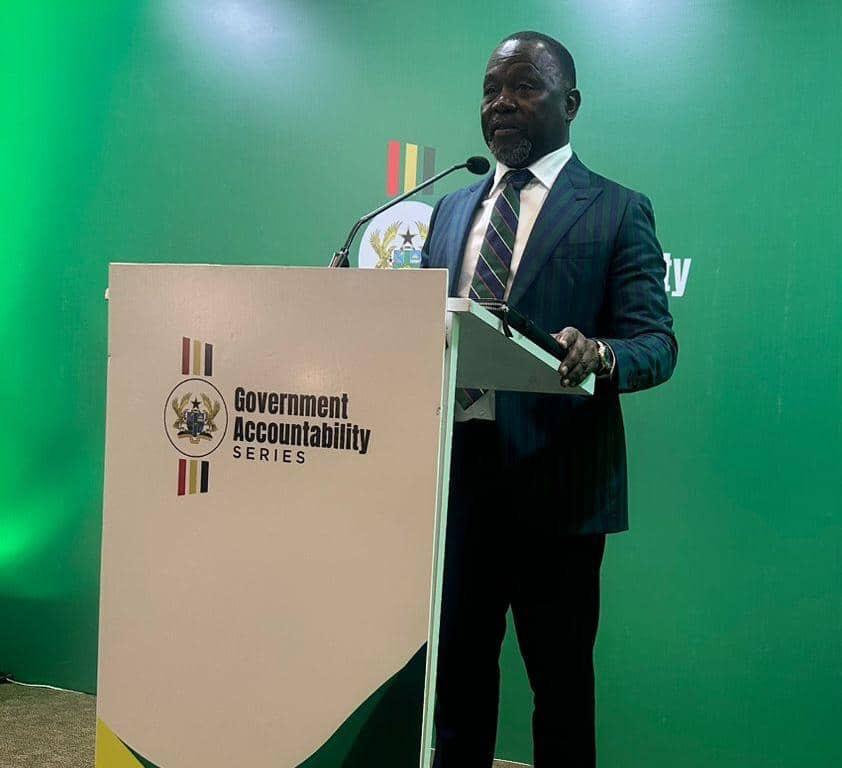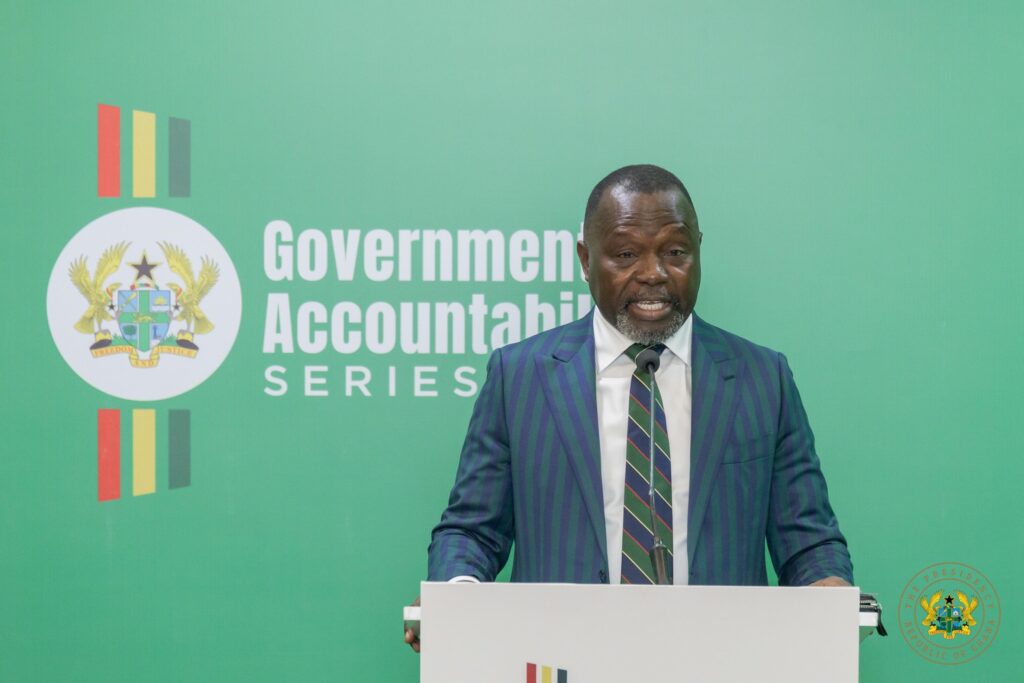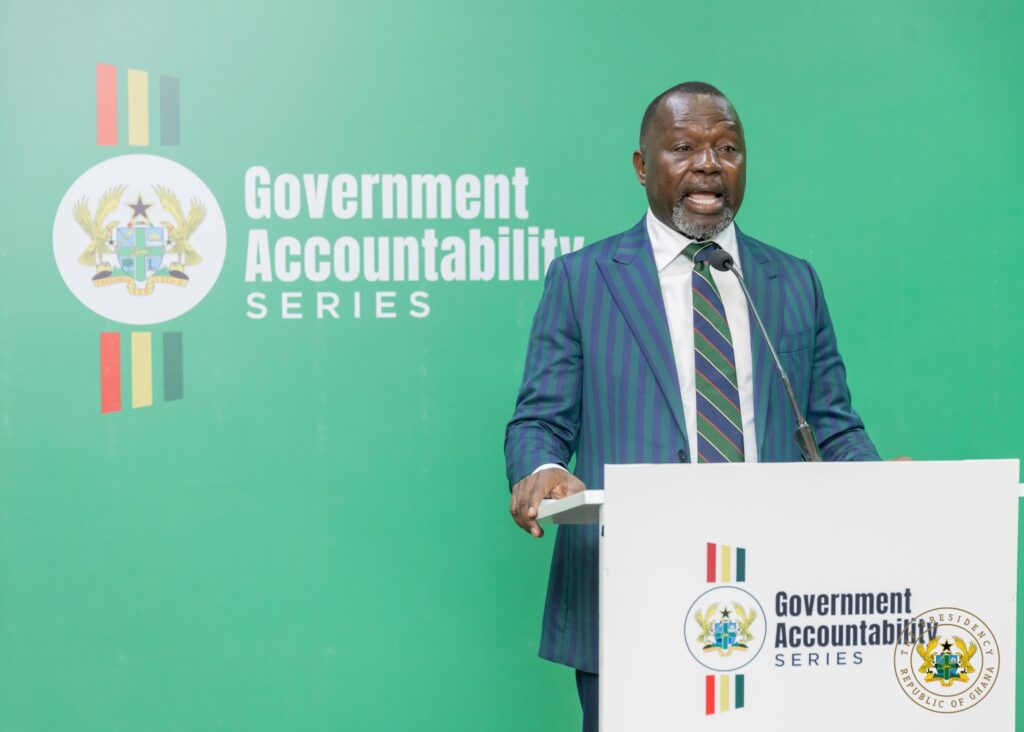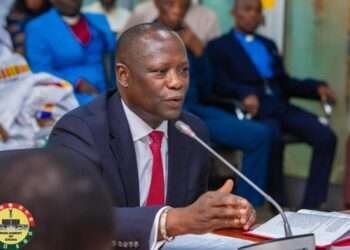The Attorney-General and Minister for Justice of the Republic of Ghana, Dr. Dominic Akuritinga Ayine, has reaffirmed his commitment to pursuing both restitution and criminal accountability in cases involving the looting of state resources.
Speaking at the latest edition of the Government Accountability Series, Dr. Ayine provided a detailed explanation of the legal framework underpinning plea bargaining and non-conviction-based asset recovery, as part of his office’s broader Operation Recover All Loots (ORAL) initiative.
“When I announced the Kwabena Adu Boahen investigation, I was blunt in stating the fact that I am open to engaging in plea bargaining with those who have been investigated and found to have looted or stolen state resources.”
Dr. Dominic Akuritinga Ayine
He emphasised that this position has not changed, adding, “I missed no words about my intentions, and will therefore not shut the door to any accused person willing to enter into negotiations with my office for purposes of reaching a plea agreement.”
The central goal of ORAL, Dr. Ayine explained, is to recover misappropriated public funds. However, he acknowledged that the term “all” must be used advisedly. “It is not in all cases that it is possible to recover all the loot,” he noted. “So you recover some, I mean, a realistically possible amount.”

Importantly, Dr. Ayine stressed that recovering stolen resources and punishing offenders are not mutually exclusive goals. “I believe that is what citizens are pushing for,” he said. “In other words, both can take place, and that will be full-fledged accountability.”
Plea Bargaining Framework
Elaborating on the plea bargaining framework, Dr. Ayine explained that negotiations often require compromises.
“Anyone familiar with plea negotiations would agree that it is rare to go into the negotiation room and come out without giving up something in order to clinch a deal. Under Ghana’s Plea Bargain Act, the Attorney-General is empowered to negotiate plea agreements, which must subsequently be approved by a judge before taking effect.”
Dr. Dominic Akuritinga Ayine, Ghana’s Attorney General and Minister for Justice
Dr. Ayine also referred to Section 35 of the Courts Act, 1993 (Act 459), which provides that an accused person may plead guilty to charges involving harm to state property and make restitution in exchange for a non-custodial sentence.
He stressed that this is not a new or arbitrary policy but part of Ghana’s statutory framework. “As our Attorney-General, I will not oppose the use of section 35 of the Courts Act to achieve the purposes of ORAL,” he said.

“Now, section 35 is mandatory. Once the accused approaches the judge and pleads guilty to the charge, the judge is mandated to act. The judge could reject the restitution or reject the offer of the accused person. But once the judge accepts the offer, I have no role in it.”
Dr. Dominic Akuritinga Ayine
Responding to criticism that plea agreements may allow corrupt individuals to avoid jail time, Dr. Ayine pointed out that the law itself contemplates that possibility.
“Those who are saying that you are cutting a deal and letting criminals walk must understand that even the legislative framework… provides that in some cases, the accused can pay restitution and get a non-custodial sentence. That is what Parliament has enacted—it was legislation by the First Parliament of the Fourth Republic.”
Dr. Dominic Akuritinga Ayine
While the Attorney-General can argue before a judge that a particular case is not fit for restitution and a non-custodial sentence, he made it clear that the final decision rests with the court.
“I can make my representation to the judge as to why this is not a fit and proper case… but that can be rejected, because the statute imposes the power and authority to determine the circumstances under which that will happen on the judge, not on the Attorney-General.”
Dr. Dominic Akuritinga Ayine
In contrast, under the Plea Bargain Act, the Attorney-General retains the discretion to negotiate and present plea deals, though judicial approval is still required. “The plea agreement must be endorsed by the judge before it is accepted,” he stated.

“Make no mistake, ladies and gentlemen, about my intentions. I want to jail persons who have looted state resources, but at the same time, I am pragmatic enough to know that it is not in every instance that is possible. In those circumstances, I will opt for non-conviction-based asset recovery.”
Dr. Dominic Akuritinga Ayine
Dr. Ayine’s comments offer insight into the balancing act between securing justice and recovering the public’s stolen wealth within the boundaries of existing legal frameworks.
READ ALSO: Government Sets Date for New Cocoa Producer Price




















